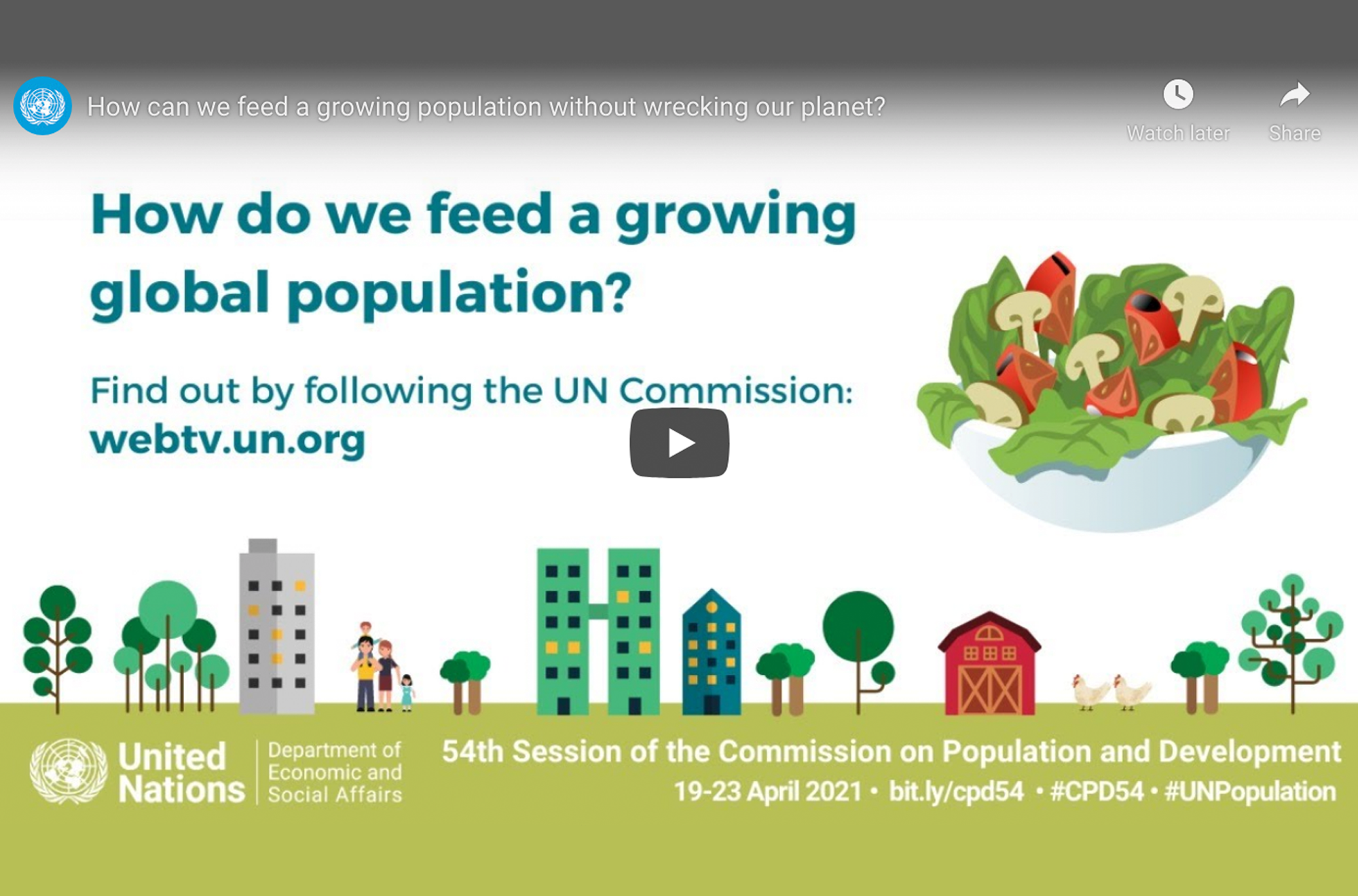
The main theme of the Commission on Population & Development (CPD) 54 in 2021 is food security and nutrition for women, girls, and adolescents. A joint statement, read out by Finnish Minister Ville Skinnari on 19 April during the general discussion session, was co-sponsored by as many as 81 countries from all regions. The statement emphasises the importance of sexual and reproductive health and rights (SRHR) in relation to the main theme this year of food security and nutrition. It brings to the fore a new perspective to these issues, linking problems that are not new but are not often discussed all together by those of us inside or outside the SRHR purview. The following countries joined the statement:
Albania, Andorra, Argentina, Armenia, Australia, Austria, Belgium, Bolivia, Bosnia and Herzegovina, Botswana, Bulgaria, Canada, Cabo Verde, Congo, Costa Rica, Croatia, Cyprus, Czech Republic, Denmark, Dominican Republic, Ecuador, El Salvador, Equatorial Guinea, Estonia, Fiji, Finland, France, Georgia, Germany, Greece, Guinea, Honduras, Iceland, Ireland, Israel, Italy, Japan, Jordan, Kazakhstan, Kyrgyzstan, Latvia, Lebanon, Liechtenstein, Lithuania, Luxembourg, Malawi, Malta, Marshall Islands, Mexico, Moldova, Monaco, Mongolia, Montenegro, Morocco, Namibia, Nepal, Netherlands, New Zealand, North Macedonia, Norway, Palau, Peru, Portugal, Republic of Korea, Romania, San Marino, Serbia, Slovenia, South Africa, Spain, Sweden, Switzerland, Tajikistan, Timor-Lest, Togo, Tunisia, Turkmenistan, Tuvalu, Ukraine, United Kingdom and Uruguay.
The statement says: “We firmly believe that the full realization of all human rights for all, including sexual and reproductive health and rights, achieving gender equality and the empowerment of women and girls are essential for addressing food insecurity and all forms of malnutrition, as well as for eradicating poverty and achieving sustainable development. We are therefore deeply concerned that hunger is increasing globally, aggravated by the impact of Covid-19 in addition to climate change. Of the 690 million people facing food insecurity in the world today, sixty percent are women and girls. Where women and girls go hungry, their sexual and reproductive health is impacted.
“Pregnancy under conditions of malnutrition or undernutrition can have life-threatening consequences. Deficiencies in antenatal micronutrients contribute significantly to the risk of haemorrhage, the leading cause of maternal mortality. Infants born to undernourished mothers are more likely to have lower birthweights and are more susceptible to diseases. Impaired growth has adverse functional consequences on the child, including poor cognition and educational performance and lost productivity.”
The statement goes on: “The world is not on track to meet WHO targets for a 50% reduction by 2025 from the 2012 anaemia level. One in three women worldwide lives with anaemia, iron deficiency that can cause organ damage, if not treated. Maternal anaemia is also associated with mortality and morbidity in mothers and babies. The world is not on track to reduce excess weight and obesity, which raise numerous risks to women’s sexual and reproductive health, from menstrual abnormalities to gestational diabetes. Maternal obesity also poses risks for maternal and child health and well-being. The world is not on track either to meet the global targets on childhood stunting, exclusive breastfeeding, and low birth weight.
“The COVID-19 pandemic created adverse conditions to reaching these goals, and combined with food insecurity is aggravating child, early and forced marriage, sexual and gender-based violence and other harmful practices, which threatens reversing decades of progress against malnutrition.
“Through the Decade of Action towards achieving the SDGs, we must do more. Nutrition, food security, sustainable development and sexual and reproductive health and rights are closely related and mutually reinforcing. The health, well-being and fulfilment of women, girls and adolescents throughout their life cycle depends on achieving these goals. Because of these interconnections, an intersectional approach is required to leave no one behind.
“The full enjoyment of all human rights by all women, girls and adolescents includes the right to food, as well as sexual and reproductive health and rights, free of coercion, discrimination and violence. Women and adolescent girls must have the ability to decide and control if, when, and how many children to have. Women and adolescent girls who choose to have children must have access to sexual and reproductive health services, including contraceptives and the ability to space pregnancies and breastfeed.”
The attempt to achieve consensus amongst all countries on these issues through a voluntary statement has been, as many previous UN meetings have shown, very difficult. Those involved closely in the current CPD see the fact that 81 countries have co-sponsored this statement as important, especially as some of them might not have been expected to do so. Perhaps it is confronting the far-reaching consequences of mass malnutrition for mothers and babies, which in turn affects major aspects of sexual and reproductive health and rights, that gained their support. Those of us whose focus is on abortion rights as the least supported part of SRHR should take a page from this, in this time of serious political differences both within and between countries, on many far-reaching important issues.
FULL STATEMENT in English, French, Spanish is on the Finnish Foreign Affairs Ministry webpage ; VISUAL: CPD 54 POSTER. Thanks to Marianne Haslegrave and Estelle Wagner for conversations about this statement.



